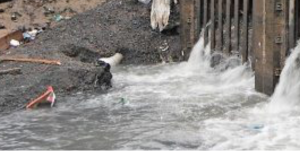We have just launched our new website, NJPACE.org, which replaces NewJerseyPACE.org (archived here). We’ve removed most of the material dating back a dozen years to focus on the new Garden State C-PACE Program being rolled out by NJEDA. Commercial Property Assessed Clean Energy—which actually covers not only the usual office, retail, and industrial, but also multifamily, agricultural, and nonprofit/institutional properties like churches, schools, hospitals, and so on—has the potential of bringing billions of dollars of investments in energy efficiency, renewables, and resiliency in the Garden State.
It’s worth revisiting some of this history if only to understand what shaped our thinking about the program over the many years we advocated for it. I first heard about PACE (Property Assessed Clean Energy) in 2011 from a group in California asking if we would support them in their effort to get Residential PACE accepted by the Federal Housing Financing Agency, which was working to stop it from being used with federally mortgaged housing. At the time, I was working with Fairleigh Dickinson University on small-scale hydro with a member of the New Jersey Legislature, then-Deputy Speaker of the Assembly, Upendra Chivukula. Chivukula, who has a Master’s Degree in Electrical Engineering, is now a Commissioner on NJ’s Board of Public Utilities.
Continue reading “Shameless Self-Promotion: We’ve just launched NJPACE.org!”

 After almost ten years of concerted advocacy, New Jersey’s C-PACE law is finally being amended to make it actually usable by municipalities and commercial property owners to limit their carbon emissions, save money, and create new jobs and opportunities in local communities. While it will still be a number of months before the NJ Economic Development Authority (NJEDA) issues rules and guidelines, the passage of the new bill (A2374/S1953) is a major milestone in NJ’s commitment to meaningful climate action.
After almost ten years of concerted advocacy, New Jersey’s C-PACE law is finally being amended to make it actually usable by municipalities and commercial property owners to limit their carbon emissions, save money, and create new jobs and opportunities in local communities. While it will still be a number of months before the NJ Economic Development Authority (NJEDA) issues rules and guidelines, the passage of the new bill (A2374/S1953) is a major milestone in NJ’s commitment to meaningful climate action.



